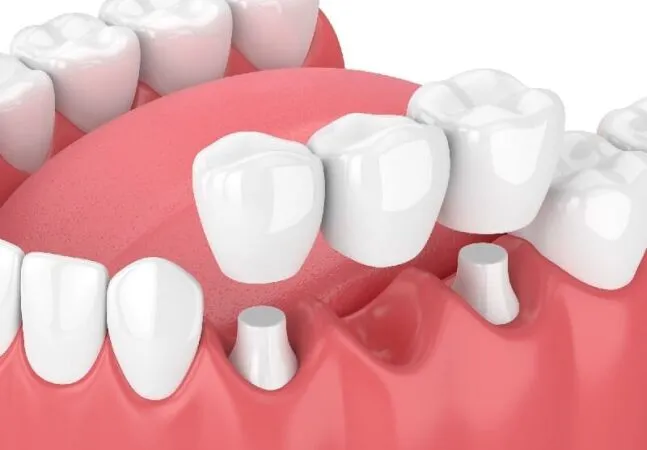Dental Implants with Toronto Expert Dr. Aksana Tkachenko

Dental Implants by Dr. Aksana Tkachenko
- 25+ years of practice
- Immediate Emergency Appointment
- 2021 New Modern Dental Studio
- Exceptionally COVID-19 SAFE Dental Experience, IPAC Non-Touch Equipment
- Pain-free procedure while you watch a Netflix movie!
- Flexible Financing with 0% interest.
- No surprise dental bills!
- FREE Visitor Parking
Call us: (416) 550-9000
Dental Implants at Chroma Dental
Essentially, a dental implant is a support post that is surgically anchored to the jawbone to support the replacement of one or more missing teeth.
When it comes to performing this type of oral-surgical procedure, it’s important to trust a dentist with a high degree of technical experience. Dental implantation procedures are considered a specialization, which means that only certain dentists can perform implant surgeries.
Fortunately, Dr. Aksana Tkachenko and her team have both the knowledge and experience needed to ensure that each implant surgery is done with the utmost level of precision and care.
Dental implant surgery involves surgically embedding a steel post into the patient’s jawbone, which will eventually fuse to the underlying bone structure. In turn, your dentist will be able to fit your smile with a permanent cap or crown (prosthetic) used to replace one or more missing teeth!
Interested in learning more about Dental Implants? Contact our Toronto dentistry office to schedule your free consultation today!
Call us: (416) 550-9000

Free Consultation
CONVENIENT SERVICE HOURS
25+ years of practice
GREAT EXPERIENCE
COVID-19 Protection Excellence
IPAC, NON TOUCH TECHNOLOGY, RCDSO
Who would be a good candidate for a dental implant?
Although dental implant surgery is an invasive procedure, most patients find that the process is easily tolerable.
On top of being given a local anesthetic or sedation during the procedure, any residual pain or discomfort afterwards is easily managed with prescription pain killer medication.
However, not every dental patient is a good candidate for an implant. In fact, many factors will determine whether a person is eligible to receive this procedure, which includes:
- The extent of any existing tooth decay
- The health of your gums
- The health of the underlying jaw structure
- Your bone density
- Whether or not you’re a smoker
- Whether the patient is using bone-building drugs
- Other health concerns, such as diabetes, cardiovascular disease, or osteoporosis.
Call us: (416) 550-9000
Transform Your Smile with a Dental Implant – Frequently Asked Questions
What are dental implants?
A dental implant is a small metal, usually titanium, post, which is surgically anchored into a patient’s jawbone. This post is used as an artificial root, to which your dentist will install a dental prosthesis.
With that said, receiving a dental implant requires invasive surgery, where the metal post will be fused to your bone structure over time.
Once the implant is healed, a natural-looking porcelain crown can be permanently affixed to it.

Frequently Asked Questions
How much do dental implants cost?
Before they involve invasive surgery, implants are generally more expensive than most other tooth replacement procedures like bridges or dentures. With that being said, dental implants are a more permanent procedure, which shouldn’t ever need to be redone. Therefore, in some respects, implants are more cost-effective in the long-term.
Typically, the overall cost of dental implants ranges between $1,500 and $6,000. However, costs can vary significantly depending on the number of implants being installed and each procedure’s complexity.
For example, if the underlying jaw structure isn’t strong enough to support the implant, bone grafting may be needed before the implant can be securely anchored.
The first stage, when the implant is surgically implanted into the jaw, and the second stage, which is when the artificial tooth is attached to the small post.
Are dental implants worth the investment?
Although dental implants are more expensive than other restoration methods, they are more permanent and often last a lifetime. Additionally, dental implants also help keep your jawbone strong and solid, which can prevent any further tooth loss.
Even for those who’ve lost all of their teeth, dental implants might be an ideal solution to getting their smile back.
When it boils down, dental implants are a more cost-effective solution in the long-term simply because they won’t ever need to be replaced and will function exactly like your remaining natural teeth.
How long does the implant process take?
Because the process involves having the implant become fused to your jawbone and gum tissue, the overall time frame to receive an implant is often 6 months to a year. However, timeframes will vary from one person to another.
Generally, this involves two stages.
The first stage, when the implant is surgically implanted into the jaw, and the second stage, which is when the artificial tooth is attached to the small post.
Is dental implant surgery painful?
Although most patients report that implant surgery is tolerable, it’s still an invasive procedure, which may leave you with some post-procedure pain and discomfort.
However, your dentist will advise you on the best way to manage any residual pain. Ice may also be used to help reduce any swelling.
How should I care for my implant?
Although your new prosthetic implant won’t decay, they still require the same care and treatment that you’d give any of your other teeth. Additionally, your implant area will be slightly more prone to inflamed gum tissue, which can become infected if not properly cared for.
That’s why proper brushing and flossing is required to care for your dental implants.
Am I eligible for implant surgery?
If you’re healthy and in good shape, you are most likely a good candidate. However, this can only be determined by a thorough oral examination performed by your dentist. The exam will include x-rays, which your dentist will use to analyze the underlying bone structure of your jaw.
To learn more about patient eligibility, don’t hesitate to contact us.
Can implant surgery fail?
As mentioned above, there are some potential scenarios where an implant may fail or be rejected by the body. Also, if the implant does not successfully fuse itself to your jawbone, there’s a minor risk that the implant could come loose and fall out. However, this is extremely rare, and your dentist will help you keep an eye on things.
Is it possible for my body to reject the implant?
Although an implant is made from surgical-grade steel, there is still a minor chance that patients might develop an allergic reaction or rejection of the implant. With that said, surgical-grade titanium poses minimal risk to you or your mouth, and your dentist will help you keep an eye on your oral health while your implant is healing. Infections are another possible reaction; however, most implant surgeries are achieved successfully with a 95% success rate.
How many teeth can an implant replace?
While most implant procedures are performed to replace a single tooth, oftentimes, a single implant can be used to support a small denture to replace several teeth simultaneously. This can often replace anywhere between 2 to 4 teeth.
Call us: (416) 550-9000













